Contents
Guide
How to Ace
the Rest of Calculus:
The Streetwise Guide
Colin Adams
Williams College
Joel Hass
University of California, Davis
Abigail Thompson
University of California, Davis
A W. H. FREEMAN / OWL BOOK
Henry Holt and Company New York
The author and publisher have provided this e-book to you for your personal use only. You may not make this e-book publicly available in any way. Copyright infringement is against the law. If you believe the copy of this e-book you are reading infringes on the authors copyright, please notify the publisher at: http://us.macmillanusa.com/piracy.
To all those students
who bought our first book.
We sure hope you got an A.
This is the second book in the series How to Ace_____: The Streetwise Guide. This volume is for students who have already taken at least one semester of calculus. It contains everything you are likely to need to know about the rest of calculus, including, among other things, multivariable calculus and sequences and series. Why did we write it? Because of the mountain of letters of support for the first book in the series, How to Ace Calculus: The Streetwise Guide, as illustrated by the following unsolicited letter:
Dear Math Types,
Who would have thought that three pencil-necked number heads could come up with a book that I would enjoy reading? But there you have it. Your How to Ace Calculus: The Streetwise Guide was a great read. In fact, I find that I like mathematics so much now that in order to give myself more time for it, I am going to give up being chair of the Hazing Committee at my fraternity. I am even considering giving up beer. Of course, then I would have to resign from the frat. But hey, I dont think I would really care anymore. Having had my eyes opened to the sublime beauty of mathematics, I have a newfound respect for the creative endeavors of humanity. This brings with it a respect for each and every individual in our diverse society. I no longer find myself judging people based on their outward appearance, such as the fact that their necks resemble pencils. I realize that physical characteristics do not reflect the immense creative potential that resides in every human being. So I thank you for changing my life. I will now dedicate myself to eradicating just the kind of attitude that I myself exemplified. I can only hope that in my small way, I can make a contribution to society that even approaches the tremendous contribution you three have made through your book. You are truly exceptional people, and I will be forever in your debt. Please feel free to call on me at any time if I can help you in any way, personally, financially, or otherwise.
With the warmest of regards,
Billy Bob Wainger
P.S.: I can only hope and pray that you will consider writing a sequel to that first book that covers the rest of calculus, including sequences and series and multivariable calculus.
Okay, okay, so it isnt a real letter. We made it up. But what is important is the sentiment it expresses, a sentiment that was expressed in bag after bag of mail that we received regarding our first book. And we are thrilled that so many people expressed such strong feelings about our necks.
If you are looking at this book in the bookstore, then either:
You took beginning calculus and used our previous book and got an A. What are you waiting for? It worked once, didnt it?
You took beginning calculus and didnt use our previous book and got a poor grade. Clearly you should get this book to rectify your previous mistake. Cant hurt to buy the first book too.
You didnt buy our previous book and still got an A. Well, did you ever stop to think that maybe you got lucky? Better buy this book to stack the odds in your favor.
You bought the first book and didnt get an A. Did we forget to mention you have to go to class and take the exams?
We would hate to think youre standing around at the bookstore reading this, in a crowded aisle with nowhere to sit down and relax. You would probably be a lot more comfortable at home, sipping a cold soft drink as you casually peruse your new purchase.
Were not going to repeat all the advice we gave in the first book on how to pick your instructor, how to study, and all of that nonsense. (Although we hope that book is on your bookshelf next to this one.) The same rules apply.
This book is devoted to the specific topics of the rest of calculus. It wont replace your text. It cant. It doesnt weigh enough. But it will explain what is really going on in the course. So go to it, and have fun!
P.S.: Check out our Web site howtoace.com where you will find lots of stuff to help you get that A, including links to exam problems, math jokes, and additional explanations.
Knowing your limits is a very important skill. You have no business hanging by your fingertips from the roof of the Empire State Building unless you know you can do so safely. You have to have put in a lot of practice beforehand, hanging from the jungle gym during recess, then hanging from the bathroom windowsill, then the hometown watertower, the Space Needle in Seattle, and finally the Empire State Building. You must know what you are capable of, what your limits are.
Similarly, in math, you want to be able to figure out your limits. Given  , you want to know that it equals 11. Or that
, you want to know that it equals 11. Or that

But just as you may overestimate your finger strength and find your situation dire, so may you overestimate your ability to determine limits. For instance, what is 
Not so obvious, is it? If we plug in x = 2, we get  . Is
. Is  equal to 0, 1, ? Good question. In fact, the limit could be any of these. Thats why we call a limit like this an indeterminate form.
equal to 0, 1, ? Good question. In fact, the limit could be any of these. Thats why we call a limit like this an indeterminate form.
The most notorious indeterminate form is

If we plug in x = 0, we get  . But we really need to know this limit. It comes up in a variety of situations, in particular when trying to show that the derivative of sin x is cos x using the limit definition of the derivative. There is a rule that can be used to find such limits. This rule was discovered by Johann Bernoulli, one of the great mathematicians of the seventeenth century, but it is named for the Marquis of LHpital, who was paying Bernoulli to teach him calculus and taking credit for Bernoullis results. In fact, we authors are doing that with this book. We havent written a word of this, although our names are on the cover. Were paying Bill Gates to write the whole thing. LHpital is pronounced Low-pee-tall.
. But we really need to know this limit. It comes up in a variety of situations, in particular when trying to show that the derivative of sin x is cos x using the limit definition of the derivative. There is a rule that can be used to find such limits. This rule was discovered by Johann Bernoulli, one of the great mathematicians of the seventeenth century, but it is named for the Marquis of LHpital, who was paying Bernoulli to teach him calculus and taking credit for Bernoullis results. In fact, we authors are doing that with this book. We havent written a word of this, although our names are on the cover. Were paying Bill Gates to write the whole thing. LHpital is pronounced Low-pee-tall.

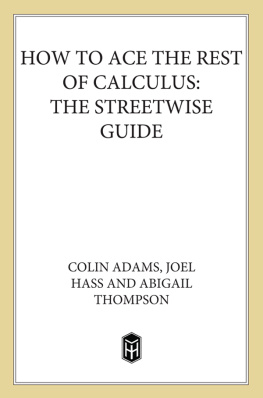
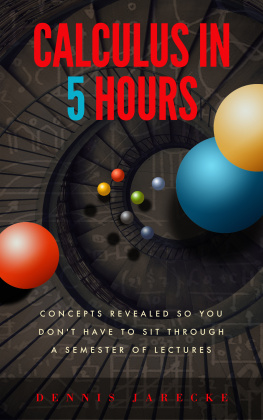
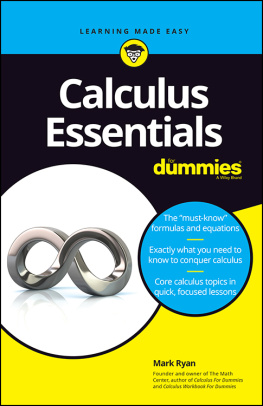
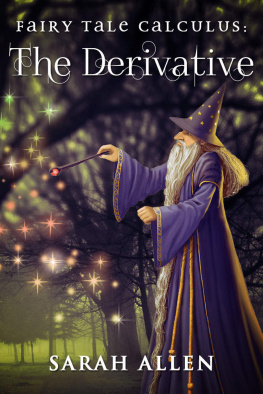

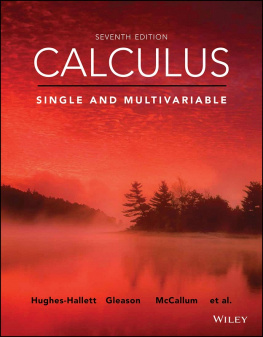
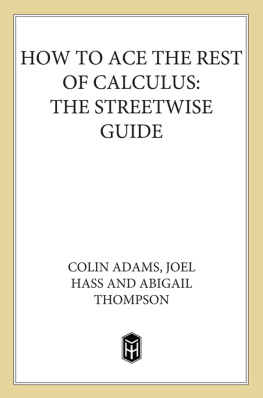
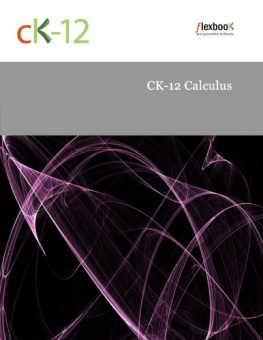
![Chris Monahan [Chris Monahan] - Calculus II](/uploads/posts/book/119088/thumbs/chris-monahan-chris-monahan-calculus-ii.jpg)
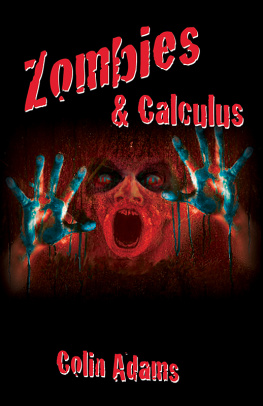
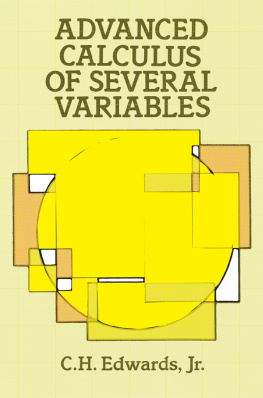
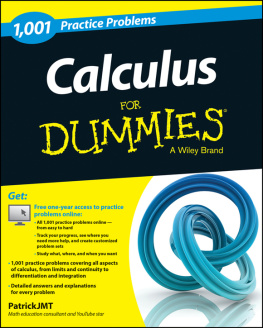
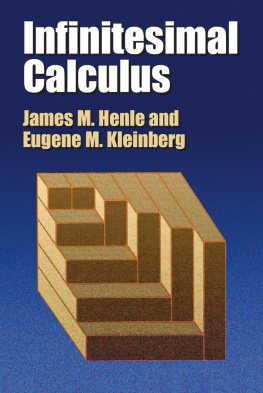

 , you want to know that it equals 11. Or that
, you want to know that it equals 11. Or that

 . Is
. Is 